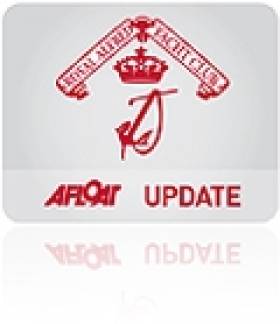Displaying items by tag: alfred
Royal Alfred Yacht Club Revive the Superleague for 2012
#SAILING–A new sailing league for 2012 to bring an 'extra focus' to yacht racing in Dublin Bay was the talk of last night's Royal Alfred Yacht Club (RAYC) black-tie awards dinner in Dun Laoghaire. The RAYC racing club will re-launch the 'Superleague' concept – first staged in the 1990s – to a new generation of sailors in 2012 with the aim of 'rewarding the best boats, skippers and crews', across the whole season, in each class in Dublin Bay, the country's biggest sailing centre.
The Superleague will be open to all classes of keelboats in Dublin Bay. In 2011 there were 15 keelboat classes with 300 boats. Visitors from Howth or elsewhere will also be welcomed in to the league.
The Superleague will consist of 10 individual events/races - six club Regattas - Dun Laoghaire Motor Yacht Club, Royal Alfred Yacht Club, Howth Yacht Club, National Yacht Club, Royal Irish Yacht Club and Royal St George Yacht Club - together with four Dublin Bay Sailing Club Saturday races - 1 in May, July, August and September. There will be four discards with six results to count.
Royal Alfred Commodore Peter Beamish believes the Superleague will bring an extra focus to racing in Dublin Bay without adding to an already cluttered event fixture list. It will increase the incentive to all boats to participate in the individual events which make up the Superleague. The club will also be awarding crew prizes which they hope will help boats build and motivate crew panels.
The hope is to provide very close overall results with final results in the balance right up to the last race in the series.
Full details of the RAYC superleague are being finalised and will be available in mid-December.






























































